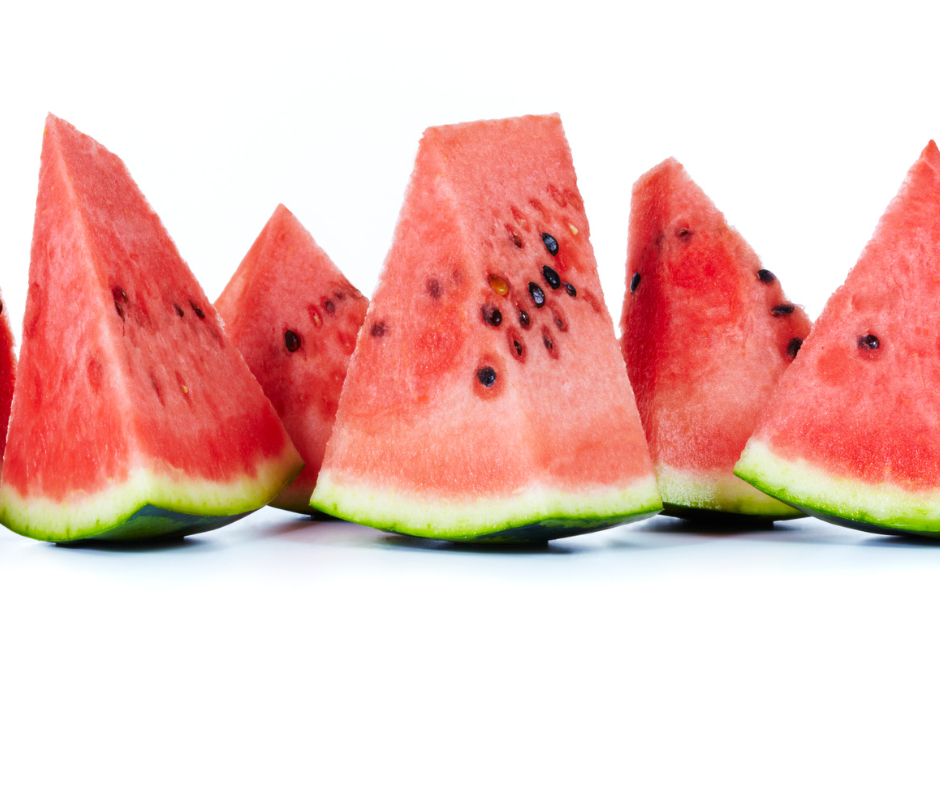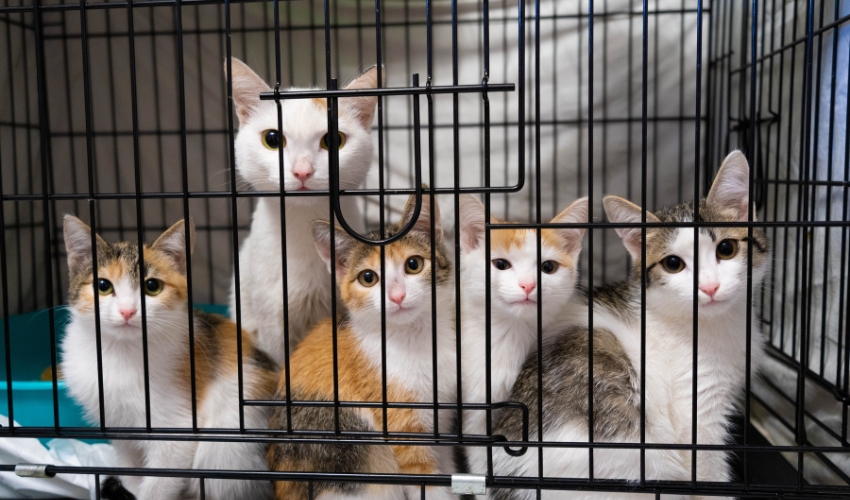For humans, watermelons are a refreshing summertime snack. It is low-calorie, hydrating, and packed with vitamins. We could make it into a juicy smoothie too. But what about our feline friends? Can cats have watermelon? Let’s explore this question together and find out if watermelons are safe for cats.
Can Cats Have Watermelon?
The answer to this is yes. Watermelons are not toxic to cats, so it is safe for them to eat this fruit. However, it is crucial to note that cats are obligate carnivores, meaning their diet should primarily consist of meat. As such, while watermelon is safe for cats to consume, it should not be a part of their regular diet.
You should offer watermelon to your cat only as an occasional treat in small amounts. Moderation is vital when feeding watermelon or any human food to cats.
Effects of Watermelon on Cats’ Health
Watermelons are packed with essential vitamins and minerals. It contains vitamins such as A, B6, and C and minerals including potassium and magnesium. Plus, it’s low in calories but rich in dietary fiber and water content. It also contains lycopene, biotin, protein, antioxidants, fatty acids, and carotenoids. While these all benefit humans, cats do not benefit from these nutrients similarly.
Nutritional Benefits
When given in appropriate small amounts, cats can still benefit from the nutrients of watermelon. The following are the good effects of watermelon on cats:
- Hydration: Watermelons are made up of 92% water, making them an excellent source of hydration for cats.
- Antioxidant: Its lycopene content gives the fruit its red color, which also benefits cats as it acts as an antioxidant that can help prevent cell damage and support overall health.
- Good for eyesight: Watermelons are also rich in beta-carotene, which helps promote healthy vision in cats.
- Good for digestion: Its fiber content can aid digestion and prevent constipation in cats.
- Promotes healthy immune and red blood cell functions: Watermelons also contain vitamin B6, which can help promote healthy immune function and red blood cell function in cats. This essential vitamin also helps regulate critical metabolic processes in cats for energy production and oxygen distribution.
- Maintains overall health: The magnesium content of watermelons can also help maintain overall health by helping your cat absorb other various vitamins and minerals. Magnesium also aids in bone growth, enzyme function, and protein production.
Potential Risks
Despite the many nutrients of watermelons, cats’ bodies do not process these nutrients the same way as humans do, which can lead to the following potential risks to cats’ health:
-
- Digestive upset: While it is true that dietary fiber can aid in digestion, too much fiber in cats can easily cause digestive upset and issues such as diarrhea and vomiting.
- Diabetes and Obesity: Watermelons contain plenty of natural sugars that can add up quickly when given to cats in excessive amounts. This can easily lead to obesity and other health problems, such as diabetes.
- Low in protein: On the contrary, watermelons are low in protein, which is vital in cats’ regular diet.
Therefore, watermelon is safe for cats to eat in small amounts as a treat. It should not be given excessively and should not be a substitute for their regular diet.
How To Give Watermelon To Cats

First, removing the seeds and rind from the watermelon is crucial when giving this fruit to your cat. The seeds are a choking hazard that could lead to an emergency. They can also cause intestinal blockages and lead to serious health problems. The rind should also be removed as it is difficult for cats to digest. This could lead to gastrointestinal upset or even diarrhea.
As such, giving your cat small, seedless pieces of watermelon as an occasional treat is best. Also, gradually introduce watermelon into your cat’s diet and monitor their reaction. If you notice any signs of gastrointestinal distress or allergic reactions, such as vomiting, diarrhea, or difficulty breathing, stop feeding your cat watermelon and consult your veterinarian.
It is also recommended to feed your cat fresh watermelon only, as canned or preserved watermelon may contain added sugars or artificial sweeteners that can harm your cat’s health.
Takeaway
As a caring and loving pet owner, you might be tempted to share your watermelon with your cat. While such fruit will also be refreshing to her, you should limit what you give to only 2 to 3 small bite-sized pieces only. As with other human foods, give watermelons to your cat moderately and occasionally only. Remember that your cat cannot digest the fruit as you and other humans do.
Also, make sure to remove the seeds and rind first. Even as you do so, observe your cat closely while eating and for a few days to ensure she’s not choking or having any adverse effects.











